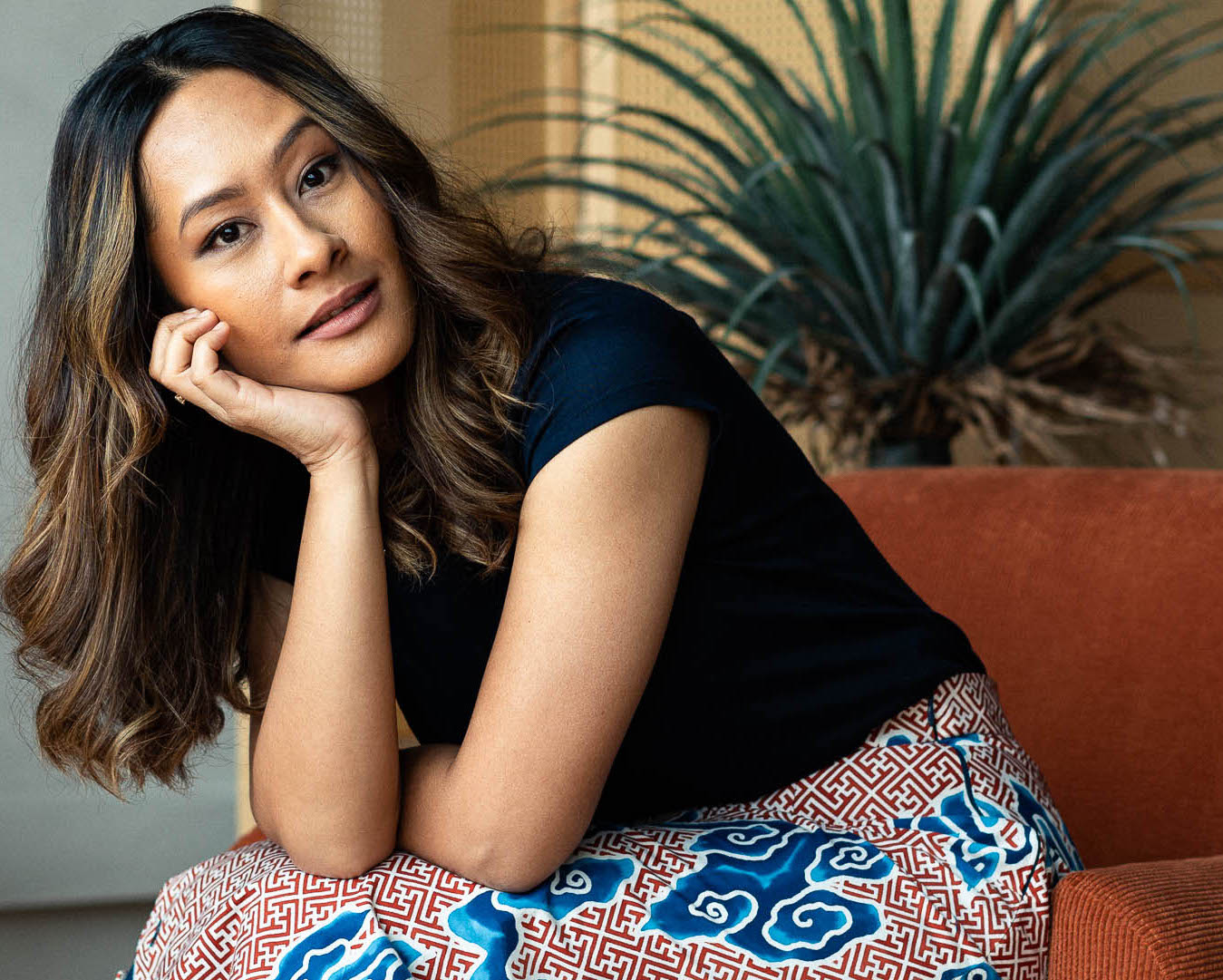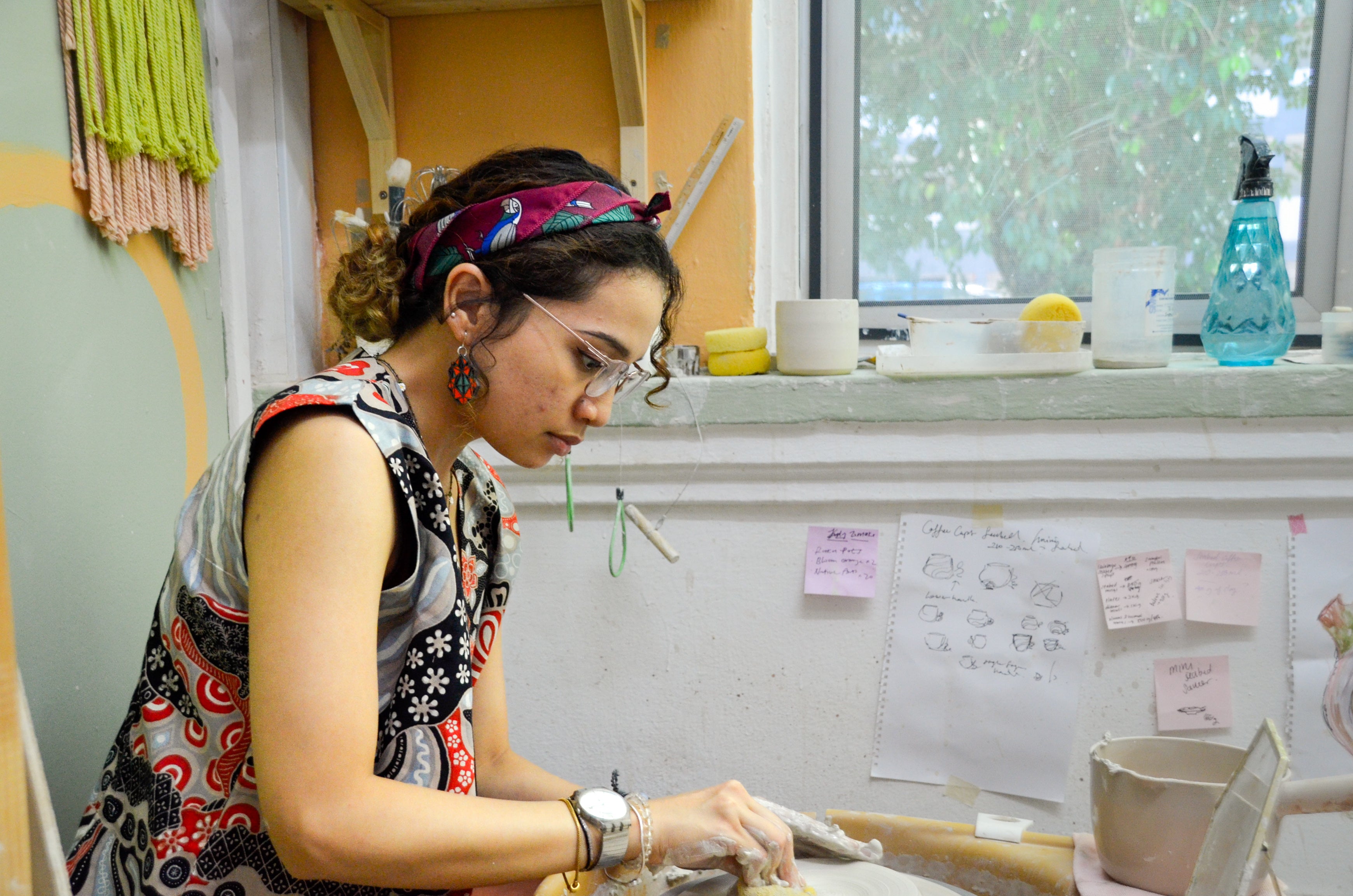
You are frequently invited to talk about diversity and inclusion in corporate and community spaces. Tell us how you discovered your voice and unique message that you are keenly sharing on your platforms Crazycat and Sarah Bagharib.
I think the journey towards discovering my voice intersected with becoming a mom four years ago. And that's around the time where I felt the misalignment in my identity, my core voice, and who I am. I was also turning 30 and it felt like a milestone in life.
Reflecting and thinking about who I am essentially, is such an existential question. But it made me think about who—or what kind of mom I want to be to my daughter, Imaan, and I felt that made me think deeply about who I am, my roots and my identities. And I think the result of that time in my life was that I recognised I wasn't allowed to be me.
Could you expand a bit more on what that means? To not be allowed to be you.
I feel that a lot of my intersections in my identity being a woman, an ethnic minority woman, a Muslim woman.. all my life I've had to shed parts of myself to fit into boxes that I just don't fit into no matter how much I try.
And I think for a very long time, I felt like that's what I had to do. To be less of myself—less Muslim, less Malay, less Arab, less whatever it is to fit into the boxes already imposed on us (in Singapore) and the CMIO model of ethnic governance. This misalignment felt greater and more jarring as I became a mom.
I want to live a life in alignment with my truth and it starts with identifying that core voice inside me. So I think over the past four years especially, I began unlearning a lot of internalised stereotypes and racism of my racial and religious identities. And it helped me recognise that, hey, it's okay for me to accept these parts of myself.
If the community, or this society, or the world, doesn't accept me, that's fine. I should firstly accept who I am. I wanted to be in alignment with that. And that's when I'm able to step into my personal power and be my most authentic self.

"I think the journey towards discovering my voice intersected with becoming a mom four years ago. And that's around the time where I felt the misalignment in my identity, my core voice, and who I am. I was also turning 30 and it felt like a milestone in life."
Can I just interject a bit? What are the situations that led you to feel that you were not aligned with yourself?
Let me start with my faith, which is one of my biggest values, being a Muslim. I felt like whenever I was in spaces, I had to shed that part of me, be less Muslim to fit in. For example, if I want to pray, I would feel embarrassed to ask and assert the need to do that.
You mean at work and in like public spaces, yes.
In public spaces, at work and in community settings as well. And also I think because I don't fit into a stereotype of what a Muslim woman should look like—I don't wear the hijab. But does that mean that I'm less of a Muslim? Faith is such a personal and spiritual journey. And I think there's that as well, where it's hard for society to reconcile that I hold this identity close to my heart.
I understand. There is a pre-existing notion of what a Muslim woman is supposed to be like and look like.
Exactly. I often get asked where I am from and if I am Singaporean. That's really hard to hear and I have consistently pushed away what I feel when I am asked this question. But this is me. And I think I've been on this journey of wanting to assert my identities even more and honour them.

Which now brings me to my next question, Sarah. As a Nusantara woman with ancestral roots in this archipelago, tell us one thing about yourself, or maybe the women in your family, that proudly grounds your identity today.
So this is really interesting because my racial and ethnic identity, it's been been something that's been very confronting to me all my life. I never felt like I belonged in either of the communities I was born into. I am Yemeni and Arab on my paternal side of the family. On my maternal side, there is my grandfather of Minangkabau descent from Negeri Sembilan while his wife, my grandmother, is a Javanese woman from Malang, Indonesia whose parents set up a satay stall in Geylang Market in the 1950s.
Culturally I've just been a lot closer to my maternal family only. So there's always that insecurity as well of my own identity, which is something that took me a while to accept and name because I didn't feel like I belong.
In Singapore, we are so constantly fitted into boxes to identify who we are. And yet I fit into none of these boxes.. so it can feel triggering to be asked "Where are you from?"
I put it off for a long time, sitting with those hard questions of who am I, where I'm from and who the people before me were. But that's part of the journey.
One interesting thing that happened in recent years was when I found out through a photo at an exhibition that my paternal great grandfather from Yemen, was married to a Malay woman from Johor. I never knew this. In the photo she was wearing a baju kurung. This was to me, bizarre, surprising and just, wow, I have a lot more roots in the Nusantara than I knew.
Do you feel a disconnection? What is the emotion that you would describe when you saw that photo and learnt of that story?
I had a lot more questions when I saw that photo, and I know that I need to take the uncomfortable steps and actually ask these questions to my family. It is labour, of course. But I feel that in order to honor my roots, my heritage, and especially the women in my family, I need to do this. My grandmother is still with us.
It may sound funny, but I feel I'm carrying the load of these women who came before me, embedded in hidden stories, untold anecdotes. There seems to be a purpose in this calling to find out and possibly share their stories.
For now though, just knowing and acknowledging is already healing.
—
Words: Team Gypsied
Images: Zainal & Zainal


